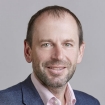Every conversation. Every collaboration. Every commitment. Let’s make climate actions count.
PwC at COP29
Making climate action count, together at COP29
Azerbaijan was selected as the Presidency of the 29th Conference of the Parties (COP29), which was hosted in Baku from 11 to 22 November 2024.
PwC convened with business, policy and NGO leaders and joined discussions to help advance meaningful action to accelerate the climate transition.
PwC’s 2024 Net Zero Economy Index shows the global decarbonisation rate was only 1.02% in 2023 and the world must now decarbonise at a rate twenty times faster if we are to limit global warming to 1.5°C. Even limiting warming to 2°C – the lowest end of the Paris Agreement’s ambition – requires a step change in progress with an annual decarbonisation rate of 6.9%.
We’re committed to playing our part, to delivering sustained, sustainable outcomes and collaborating to create real value. Let's make our climate actions count.
Our presence at COP29
PwC was honoured to participate in events throughout COP, bringing leaders together to explore solutions on key topics, such as:
- Mobilizing finance towards the climate transition
- Transforming energy supply, and demand
- Accelerating decarbonisation at a greater pace, for a sustainable future
We would like to thank the numerous business, policy and NGO leaders who came together to explore actions we can take to turn climate ambition into practical, purpose-led plans.

Reflections from our delegates
Explore our key sustainability insights
PwC’s sustainability commitments

Net zero
To avoid the worst impacts of climate change, business, government and society need to work together to transition to a net zero economy. At PwC, we believe the business community has a role to make that happen. We're committed to leading by example and reaching net zero in line with 2030 targets.
The Energy Transition
Visit our content hub to discover more about fuelling a resilient future through powerful alliances, greener investment and greater use of renewables.
Sustainability
Our passionate community of solvers are ready to put in the work with you - environmentalists, sociologists, economists, strategists, technologists. Combining real world experience with a commitment to change..
Contact us












